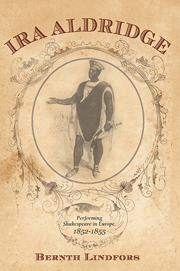Book contents
- Frontmatter
- Contents
- List of Illustrations
- Acknowledgments
- Abbreviations
- Introduction
- 1 Making Up a Company
- 2 Brussels
- 3 Navigating up the Rhine
- 4 Moving into the Interior
- 5 Berlin
- 6 On to Vienna
- 7 Hungarian Rhapsodies
- 8 Comparisons and Contrasts
- 9 Personal and Personnel Matters
- 10 Hungarian Rap Sheet
- 11 Prussia, Germany, Switzerland
- 12 Homeward Bound
- 13 Interpreting Shakespeare
- 14 Further Travels
- Appendixes
- Notes
- Selected Bibliography
- Index
- Miscellaneous Endmatter
8 - Comparisons and Contrasts
Published online by Cambridge University Press: 05 December 2013
- Frontmatter
- Contents
- List of Illustrations
- Acknowledgments
- Abbreviations
- Introduction
- 1 Making Up a Company
- 2 Brussels
- 3 Navigating up the Rhine
- 4 Moving into the Interior
- 5 Berlin
- 6 On to Vienna
- 7 Hungarian Rhapsodies
- 8 Comparisons and Contrasts
- 9 Personal and Personnel Matters
- 10 Hungarian Rap Sheet
- 11 Prussia, Germany, Switzerland
- 12 Homeward Bound
- 13 Interpreting Shakespeare
- 14 Further Travels
- Appendixes
- Notes
- Selected Bibliography
- Index
- Miscellaneous Endmatter
Summary
So far, we have been following Aldridge from place to place in a chronological fashion in order to show how his reputation grew as he made his rounds and how he was regarded by the different national audiences he faced. We have seen him in a number of German towns and in four major cities—Brussels, Berlin, Vienna, and Pest—where he performed mostly with his own troupe but increasingly with local acting companies, especially in productions of Merchant of Venice. In all of these places he had been viewed as a theatrical phenomenon not only because of his race but also, more importantly, because he was a skillful interpreter of three very different standard Shakespearean roles—Othello, Macbeth, and Shylock—as well as one farcical racial role, Mungo, that had never been seen before on the Continent. We must remember that he was traveling at a time when the debate about slavery in the United States was beginning to move toward a climactic civil war and when most Continental Europeans had had little or no direct exposure to Africans except perhaps to a few unusual “specimens” displayed at fairgrounds or in ethnological exhibitions. To such audiences Aldridge's intelligence, sophistication, and charming manners were a great surprise.
- Type
- Chapter
- Information
- Ira AldridgePerforming Shakespeare in Europe, 1852-1855, pp. 121 - 135Publisher: Boydell & BrewerPrint publication year: 2013

